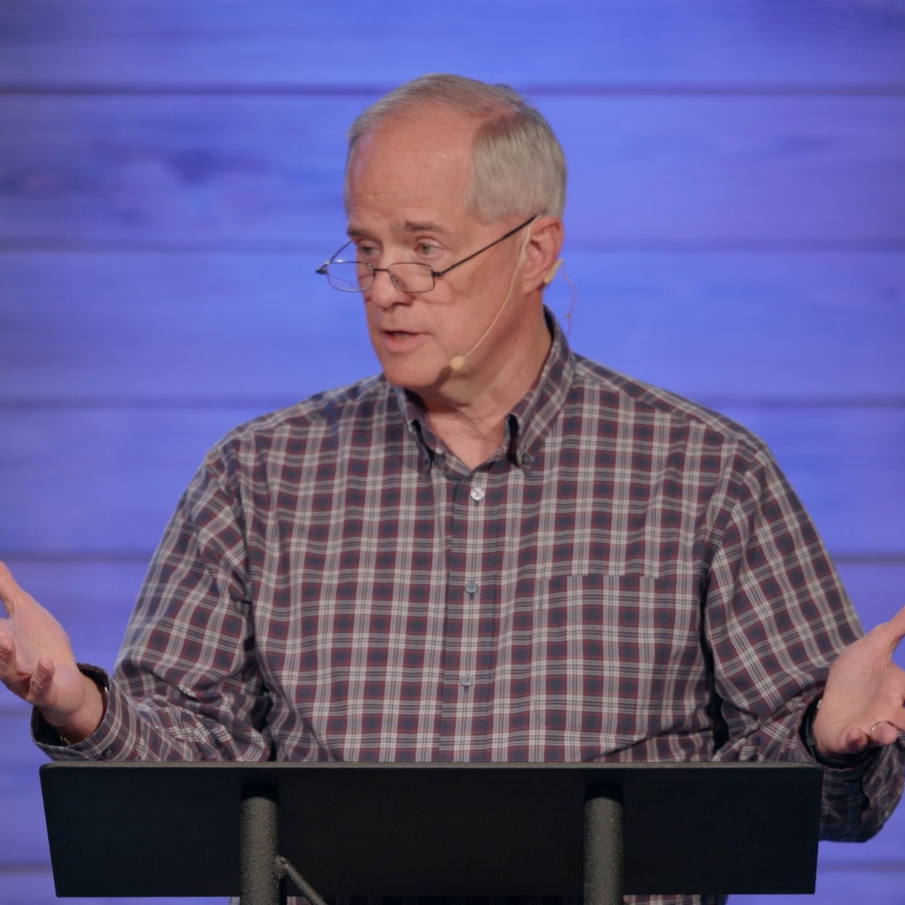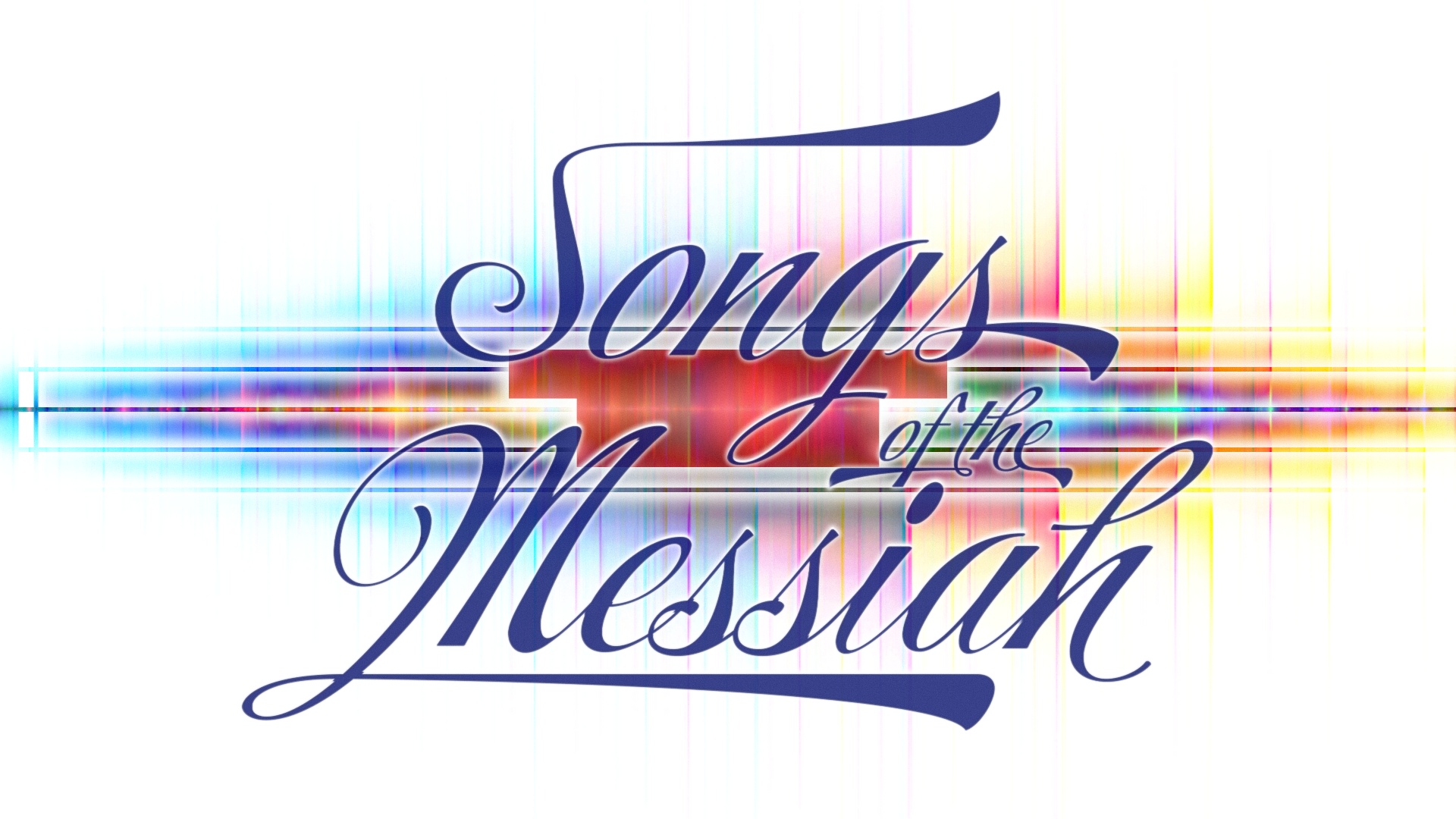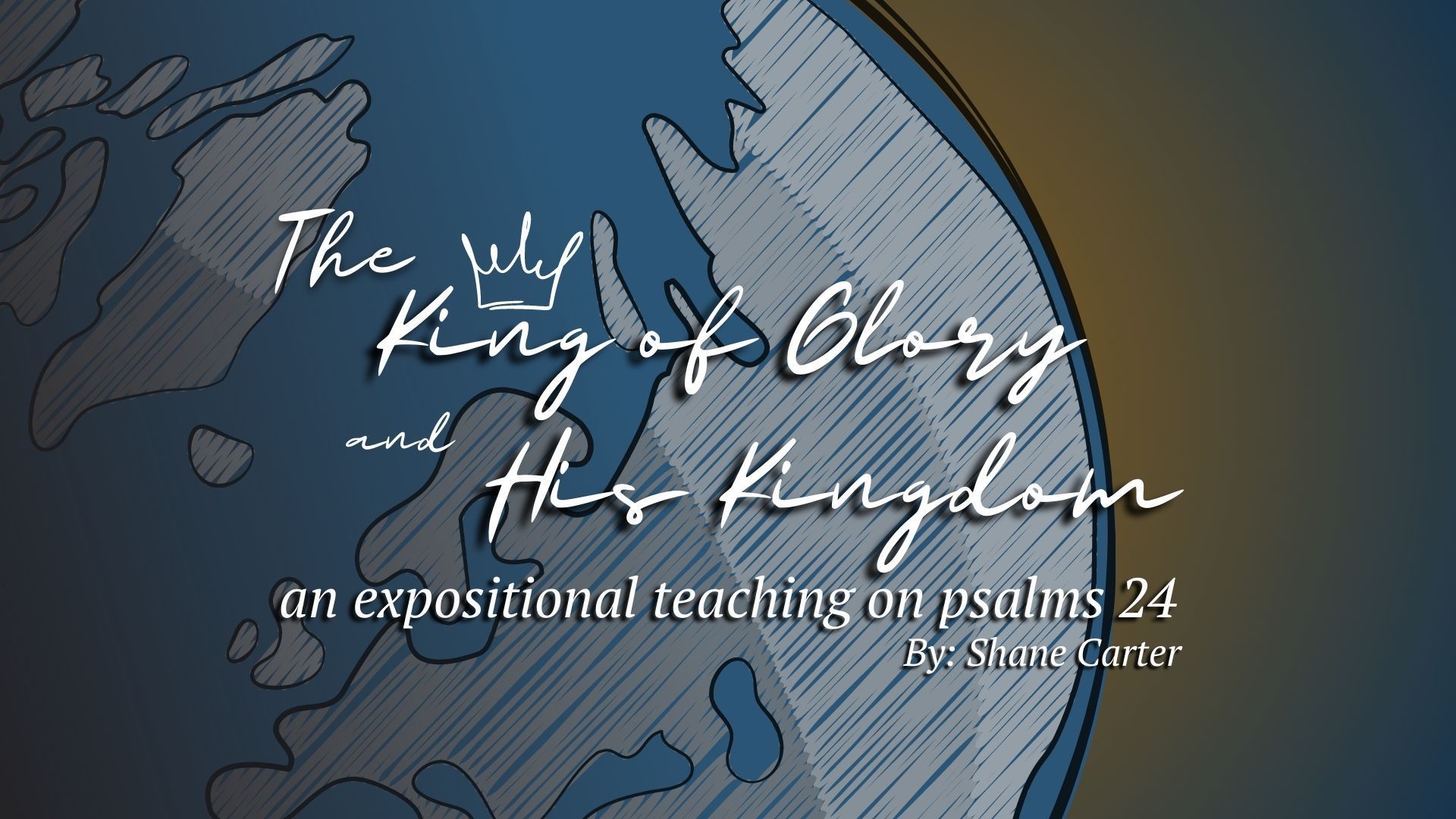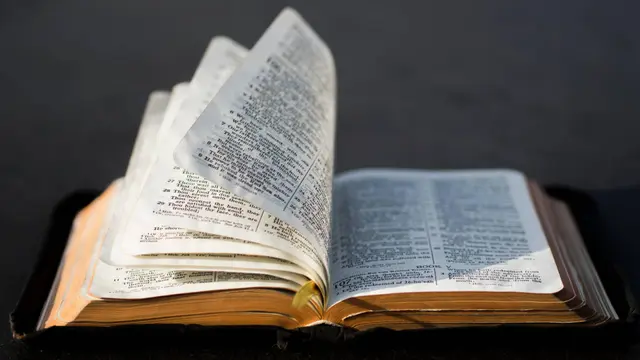INFO
MINISTRIES
TEACHINGS
CONNECT
Sunday Service 9am & 11am
Wednesday Service 7pm
(210) 920-6502
551 E Nakoma St.
San Antonio, TX 78216
MANUSCRIPT
In John 12.21, let’s recall John’s record of our theme verse...20 Now among those who went up to worship at the feast were some Greeks. 21 So these came to Philip, who was from Bethsaida in Galilee, and asked him, “Sir, we wish to see Jesus.”
That’s our mission...to introduce people to Jesus...and we’re learning how to do that in the book of Psalms…
As I said, we’ll cover some background material each week...tonight, I wanted to quickly share three elements about the Psalter that will help us gain a better overall understanding of the book...
Timing of the writing: based on internal evidence mainly from the superscriptions, but also from the text of the psalms themselves, we can observe that the psalms were written across the entire breadth of the Old Testament...Moses wrote Psalm 90, the first psalm in Book IV...and at the other end of the timeline, Psalm 126.1-2 was written after the return of Judah from Babylon…
Doxologies: we know there are five books within the book...when you look carefully at the final psalm of Books I through V, you notice that each one has a doxology, a verse intended to call the people to praise God...they are very similar but slightly different...Psalm 106.48 is representative of the group... Blessed be the Lord, the God of Israel, from everlasting to everlasting! And let all the people say, “Amen!”
Praise the Lord!
Word choice: And finally, there is a distinct difference from book to book regarding the use of the Hebrew that is translated “God” in English...in books I, IV, and V, ‘Yahweh’ is heavily used as compared to ‘Elohim’ – the reverse in true for books II and III...but the change comes into play in tonight’s psalm, Psalm 45…
A little background on this psalm...it’s considered messianic because the content uses the literary construct of a type/anti-type relationship...Richard Belcher describes this relationship this way: A type is a person, event, or institution that serves as an example or pattern for later events, persons, or institutions. In other words, God works a certain way in the Old Testament (the type) that is foundational for the way he will work in the fulfillment in the New Testament (the antitype). We see that in this psalm expressed in the comparison of King Solomon and Jesus Christ the Messiah, particularly in the wedding passage…
How are we to understand this wedding? Belcher describes the best approach this way: ...a typological approach that sees the event of the royal wedding of the king as a type of the relationship between Christ the king and his bride, the church.
The type of marriage is often used in Scripture…
Hosea 1-3 refers to the relationship between God and Israel
Ephesians 5.22-33 refers to the relationship between Christ and the Church
Jesus refers to Himself as a Bridegroom in Matthew 9.14-17 regarding fasting
Jesus tells the parable of the wedding feast in Matthew 22, emphasizing the right attitude of those who would come to the feast, represented by an appropriate robe
I think we would do well to understand Psalm 45 in light of these other passages relating to marriage that see it as a type of our relationship to Christ, a point made most clearly in Ephesians 5.31-32: 31 “Therefore a man shall leave his father and mother and hold fast to his wife, and the two shall become one flesh.” 32 This mystery is profound, and I am saying that it refers to Christ and the church.
As for the superscription, Psalm 45 has a fairly lengthy one...”to the choirmaster” (55 uses) refers probably to the person responsible for the musical performance of the psalm... “On Lilies” is likely the name of a musical tune, similar to “The Doe of the Dawn” in Psalm 22... Psalm 45 is noted as one of the eleven “sons of Korah” psalms, most in Book II...“maskil” (13 uses) seems to be a form of a teaching song...finally, the term “love song,” also translated “a song of the beloveds,” is unique in the Psalms...the only biblical comparison to this psalm is the Song of Solomon, which is closely connected, since the wedding depicted in Psalm 45 is almost certainly that of Solomon…
Remember as we begin that this psalm is a love song, and reading it is like having a front row seat at a royal state wedding between a king and a princess...much like all the psalms we’ve seen in this series, this one is to be understood on two levels: the human level and the divine level...but as the psalm begins, it’s time for the joyous celebration of a royal wedding, and we are all invited!
Prologue 45.1
We don’t know exactly who wrote this psalm, but we know that the author was a gifted poet...
1 My heart overflows with a pleasing theme;
I address my verses to the king;
my tongue is like the pen of a ready scribe.
Perhaps a court scribe or a poet commissioned for this special occasion wrote this...whoever it was created something overseen by the Holy Spirit that has meaning and purpose far beyond even the magnificent event that he recorded…
The Groom 45.2-9
The scribe attends first to the king...
2 You are the most handsome of the sons of men;
grace is poured upon your lips;
therefore God has blessed you forever.
Why is this king worthy of praise?
The psalmist speaks first of two characteristics of the king – one visible, one not visible...
This king is handsome...at the human level, with all of Solomon’s wealth, it’s hard to imagine the attire he would have worn to his royal wedding, but his clothing is secondary to the king himself...we don’t know much else about Solomon’s physical appearance...as for the true King of Heaven, what we learn from Scripture teaches us that in His incarnation, Jesus was not a man one would likely call “handsome” – Isaiah 53.2 says of the Messiah that he had no form or majesty that we should look at him, and no beauty that we should desire him. ...when we see Him in the new Heaven and the new Earth, He will look more as John describes Him in Revelation 1...glorious, royal, incomparable...but still Jesus, our Lord, our King, our best Friend!
And this king is eloquent...in Solomon’s case, he had been given wisdom beyond that of anyone else on earth...his words were renowned around the world for insight, knowledge, and understanding...but he was clumsy and ignorant compared to the gracious, sweet, and kind, yet wise, true, and powerful words of our Lord...far more than the apostle Paul, the words of Jesus will be in demonstration of the Spirit and of power (I Corinthians 2.4)...His word is living and active (Hebrews 4.12)...and it never goes forth without accomplishing the Lord’s intent (Isaiah 55.11)...and it’s eternal, never passing away (Matthew 24.35)...Jesus is the master of the word fitly spoken…
And the text concludes therefore God has blessed you forever. Solomon enjoyed God’s blessing for his lifetime, but that blessing didn’t endure long after his death, as the kingdom was divided...but Jesus is truly the ever-blessed Son of God, forever enthroned at the right hand of the Father…
The next portion of the text, verses 3 through 5, take a surprising turn...
3 Gird your sword on your thigh, O mighty one,
in your splendor and majesty!
4 In your majesty ride out victoriously
for the cause of truth and meekness and righteousness;
let your right hand teach you awesome deeds!
5 Your arrows are sharp
in the heart of the king's enemies;
the peoples fall under you.
This is the point that the psalm diverges from the earthly king, Solomon, and the focus begins to change to Jesus, the Messiah...the language here is focused on warfare and the king’s leadership in battle...why is that different?
Solomon enjoyed a distinctly different reign as the king of Israel...he was blessed of God to rule over the kingdom after it had been established by David and after all his enemies around him had been defeated...instead of going out to battle, Solomon stayed in Jerusalem, where he received tribute from vassal nations, hosted visits from heads of state, negotiated trade agreements, and built his own house and the house of the Lord, Solomon’s Temple...for more on his reign, see I Kings chapters 4 through 8...but throughout that period of Israel’s history, Solomon didn’t serve as a military leader...it was a role he never had to fulfill...
Then why does the psalmist call for the king to be a warrior?
Because as David was, so is Jesus...He is our Warrior-King...granted, in His earthly ministry recorded in the gospels, Jesus brings division, but not war...He certainly was not the political and military messiah many wanted at the time...but make no mistake, Jesus ultimately does exactly what the psalmist asks of Him here in verse three...He girds on His sword and rides out with His armies to do battle…
But any warrior knows a fundamental truth: you have to know what you’re fighting for...the kings of the OT fought for power, resources, and wealth, just as nations still do today...but that isn’t the cause of Christ, that isn’t what Jesus fights for...the objective of His battle is entirely different…
Our King Jesus fights for a glorious cause, God’s divine character...truth, not the lies of the world...meekness and humility, not for pride and arrogance...and righteousness, not the deceitfulness of sin...and He will do valiantly, as Psalms 60 and 118 both describe...He will be victorious, bringing down the enemies of God through divinely powerful weapons... Revelation 19.11-16 is clear... 11 Then I saw heaven opened, and behold, a white horse! The one sitting on it is called Faithful and True, and in righteousness he judges and makes war. 12 His eyes are like a flame of fire, and on his head are many diadems, and he has a name written that no one knows but himself. 13 He is clothed in a robe dipped in blood, and the name by which he is called is The Word of God. 14 And the armies of heaven, arrayed in fine linen, white and pure, were following him on white horses. 15 From his mouth comes a sharp sword with which to strike down the nations, and he will rule them with a rod of iron. He will tread the winepress of the fury of the wrath of God the Almighty. 16 On his robe and on his thigh he has a name written, King of kings and Lord of lords. That’s the Warrior-King, Jesus!
Is Jesus going to wage war with the weapons of the first century? No...in verse 15, and in three other passages from Revelation and all pertaining to the ultimate and final victory of God, we learn that God will use His own Word to conquer sin and the devil...Revelation refers to the sword coming from the mouth of the Warrior-King, Jesus Christ (Revelation 1.16, 2.16, 19.15, 19.21) as the Word of God...He crushes His adversaries by speaking a word, and those adversaries are forever and finally destroyed...in this final battle, you just don’t want to line up against Jesus...it won’t end well for His enemies…
Now we come to the passage that most clearly makes this psalm a messianic psalm… verses 6 and 7...
6 Your throne, O God, is forever and ever.
The scepter of your kingdom is a scepter of uprightness;
7 you have loved righteousness and hated wickedness.
Therefore God, your God, has anointed you
with the oil of gladness beyond your companions;
There is considerable debate among scholars on how best to understand these two verses in the context of the psalm...perspectives range from seeing 45.6-7 only in its original contextual and historical setting with no messianic meaning, to seeing it as referring only to Jesus as Messiah and not to Solomon, or any other Davidic king, at all...the most likely approach, as I see it, is to understand this as we have other messianic passages, in two ways: in the historical context, but also with the benefit of the NT understanding the sees the passage christologically...since we know from Luke 24 that the psalms speak of Jesus, we need to look for Him, and I believe this is a passage that clearly refers to the Messiah, Jesus…
Taking that approach, verse 6 can only refer to Christ, both in identity and eternality...as Calvin notes, this title cannot well be applied to a mortal man; for we nowhere read in Scripture that man or angel has been distinguished by this title without some qualification. ... no one man is called by this name without some word added by way of restriction, as when Moses was appointed to be a god to Pharaoh, (Exod. 7:1.) From this we may naturally infer, that this psalm relates, as we shall soon see, to a higher than any earthly kingdom.
The Messiah-King perfectly wields the scepter of righteousness, and He is anointed with the oil of gladness, appropriate for a joyous celebration like a wedding, and also appropriate for the perfect Anointed One, Jesus Christ…
The final proof of the messianic nature of this psalm is Hebrews 1.8-9, where the author quotes this passage from Psalm 45 about Jesus...
8 But of the Son he says,
“Your throne, O God, is forever and ever,
the scepter of uprightness is the scepter of your kingdom.
9 You have loved righteousness and hated wickedness;
therefore God, your God, has anointed you
with the oil of gladness beyond your companions.”
In the context of the supremacy of Jesus Christ, the author of Hebrews takes these words and applies them directly to the Messiah in both identity and eternality...
Having extended the wedding celebration to include Messiah, the psalmist returns to extolling the bridegroom…
8 your robes are all fragrant with myrrh and aloes and cassia.
From ivory palaces stringed instruments make you glad;
9 daughters of kings are among your ladies of honor;
at your right hand stands the queen in gold of Ophir.
I’ve been to just a few weddings that I would call “extravagant” – this one certainly is! Perfumed robes for the bridegroom, the venue has ivory inlays in luxurious wood paneling, a string orchestra of some size is playing, the attendants are all princesses...and at the right hand of the king stands the new Queen, ornamented with the finest gold the kingdom can obtain...and it is to her that the focus now turns...
The Bride 45.10-15
The earthly bride in this psalm, Solomon’s queen, is almost certainly Pharaoh’s daughter, his legitimate wife (I Kings 3.1)...
10 Hear, O daughter, and consider, and incline your ear:
forget your people and your father's house,
11 and the king will desire your beauty.
Since he is your lord, bow to him.
12 The people of Tyre will seek your favor with gifts,
the richest of the people.
The psalmist counsels to the new queen in this passage...imploring her with three verbs in succession: “hear,” “consider,” and “incline”...and what advice would the psalmist give to the princess who is about to become queen?
First, consider your loyalty...it sounds harsh to say, “forget your people and your father’s house,” but in truth, it makes sense and is the very best way forward...the daughter of Pharaoh was about to take on a completely new role as Solomon’s queen...no longer would she be a member of the royal house of Egypt, but of Israel...this was a moment of significant and important change...and her loyalties needed to change along with her role, her title, and her new family…
And that change is biblical, too...Genesis 2.24 says it from the bridegroom’s point of view... Therefore a man shall leave his father and his mother and hold fast to his wife, and they shall become one flesh. Of course, this is repeated in the NT by Jesus (Matthew 19.5, Mark 10.7)
and by Paul (Ephesians 5.31)...it’s fundamental to not just marriage, but also to the person’s relationship to the parents...the bride is now the queen, not a princess…
Second, she must consider her submission...in the psalm, it is said as “bow to the Lord”...the relationship is based on the identity of the king...the queen is the queen because she is now married to the king...and that relationship of submission is also one of respect, honor, and obedience, and an important role alongside the king...she is now royalty...let’s see more of who she is and what is her new status…
First, she will be extravagantly blessed by the king...Tyre was a royal city of the Philistines, ruled by Hiram, an important trading partner of Israel...Tyre was a coastal city just south of Sidon, and was very wealthy due to their involvement in shipping and trade...if Tyre sent wedding gifts to the king and queen, they would be amazing…
Now the psalmist turns to the queen herself...
13 All glorious is the princess in her chamber, with robes interwoven with gold.
14 In many-colored robes she is led to the king,
with her virgin companions following behind her.
15 With joy and gladness they are led along
as they enter the palace of the king.
The princess is preparing for the wedding in her chambers with her bridesmaids, getting dressed for the ceremony in what must have been stunningly beautiful garments and robes, similar to how the robes of the king are described...expensive fabric made even more lovely by weaving gold into the fabric…
She and her virgin companions, the princesses who were serving as bridesmaids follow her as they are led to the palace of the king for the wedding, filled with joy and gladness!
Epilogue
What is the outcome of this royal wedding? How does the psalmist finish this love song?
16 In place of your fathers shall be your sons;
you will make them princes in all the earth.
17 I will cause your name to be remembered in all generations;
therefore nations will praise you forever and ever.
The royal line will continue as the king and queen begin their family...the princes will soon take their place in the service of the king, who will be remembered forever and ever...all the generations to come will sing glory and honor and praise to the king!
What a beautiful scene...the all-glorious King of Heaven, with His glorious Queen at His side...so from the picture of Psalm 45 to the teaching and parables of the NT, we see the final culmination of this picture of the union of God the Son with His Bride, the Church, in Revelation 19.6-9...in an event called the marriage supper of the Lamb...
6 Then I heard what seemed to be the voice of a great multitude, like the roar of many waters and like the sound of mighty peals of thunder, crying out,
“Hallelujah!
For the Lord our God
the Almighty reigns.
7 Let us rejoice and exult
and give him the glory,
for the marriage of the Lamb has come,
and his Bride has made herself ready;
8 it was granted her to clothe herself
with fine linen, bright and pure”—
for the fine linen is the righteous deeds of the saints.
9 And the angel said to me, “Write this: Blessed are those who are invited to the marriage supper of the Lamb.” And he said to me, “These are the true words of God.”
Amen! Blessed be the name of the Lord!
Application
What do we learn about Jesus from Psalm 45?
He is glorious!! As we see Him in the gospels, we must learn of Him and His ways, but never forget that today He is the risen Christ...we do not yet see Him as He is, but we will...and He will be magnificent!
He is our Bridegroom...He loves us with an everlasting love, even to the point of sacrificing Himself to redeem us from our sins...there is no greater love than His...
He is our Warrior-King, our champion of truth, meekness, and righteousness...
And we are His Bride, the Church...we have been given by the Father to the Son, and we will be joined to Him throughout all eternity, in glory far beyond any earthly wedding, even Solomon’s...His glory, and our glory, will leave us speechless as we are clothed in the deeds of the righteous lives we lived on earth…
And most astonishing of all, we will reign with our Lord and King, Jesus Christ, for all eternity, over His new creation, the new heaven and the new earth, by His side with the redeemed of all the ages, rejoicing in His presence, serving at His will, and singing His praises forevermore…
That’s a glorious future worth rejoicing in!

Taught by Mike Morris
Associate Pastor of Verse By Verse Fellowship






